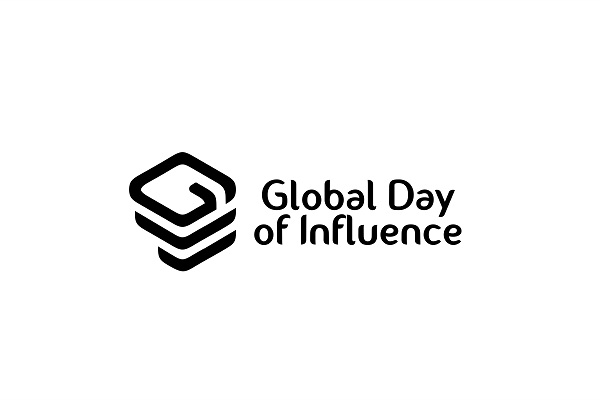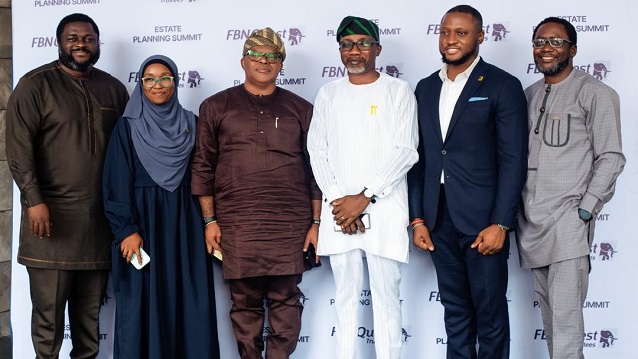General News
Why We Need to Build a World Where Influence is a Blessing and Never a Curse

By Tomide Adeyeye
A quick glance through history and you will notice some key people who shaped the world. While many of these historical figures may be long gone, their impact is still very surreal.
For example, the Nazis’ idea of a “national community” shaped according to their racial ideals, was (and still is) a strong narrative used to validate some of the vile actions carried out. Nazis used laws to define and then separate those who belonged to the “national community” from those who did not. And they used the media to influence the thoughts, feelings, and actions of individuals in Germany.
While the Nazis used propaganda as a tool to try to condition the German public to accept, and support, all of their goals (including rearmament and war), the reality remains that these tactics are still being exploited today. Everyday we see people of influence use their powers to sell questionable agenda.
It is estimated that the effects of World War II led to the deaths of over 85 million people, and if the war had not come to an end following the suicide of Adolf hitler, who was the leader of the Nazis, many more would have died.
This is a classic example of how a compelling narrative matched with immense influence can completely change the world, either for good, or bad.
Nowadays conversations around influence are often trivial, focusing on the value of visibility, but at its core, influence resonates deeper than at face value. And many forget that influence is a key make up of how our world, our reality is shaped.
It’s bigger than who influences the clothes we wear or the food we eat. It’s bigger than what we watch or listen to. Influence rationalises the way we think and it is even more powerful because most times you can’t trace its root cause.
A recent study by renowned economist Matthew Gentzkow, showed that fabricated stories favoring Donald Trump were shared a total of 30 million times, nearly quadrupling the number of pro-Hillary Clinton shares leading up to the 2016 US elections. His study also shows that the most widely circulated stories were shared by well meaning Americans who believed these false narratives and became advocates for the message carried in these stories.
It is almost ironic that the leadership of the world was most likely shaped by the impact of false narratives. And this is the reality of the world we live in now. From Washington to Kigali; from London to Beirut. From Johannesburg to Abu Dhabi. We are facing a crisis of misinformation and leadership, engineered by people, platforms and places of strong influence. At a time when the world is in desperate need for great leadership, we are instead drowning in fake news and propaganda.
Look closer to home and you will see another depiction of influence in its devastating form. If you’d stroll through the Rwandan capital, Kigali, today, you’ll encounter well-kept streets, new skyscrapers and business centers — a modern city. And yet, 26 years ago, these same streets throughout the country — were lined with hundreds of thousands of corpses. It has been a quarter century since nearly 1 million people, most of them from the Tutsi minority group, were massacred in Rwanda in the space of a few months.
It took a long time for the massacre to be recognized as a genocide against the Tutsis, and for the world to say that it would “never again” look the other way. You would wonder why something so obvious would be hard to see. Why did it take the world a long time to recognise the genocide?
History often tells the story of how Hutu extremists carried out plans to wipe out the Tutsis. But how was a message of hate able to travel across the country, so much so that one man had no qualms in ending the life of his fellow countryman?
And yet, the world continues to look away every day. Not in Rwanda. But in Yemen, Congo, Myanmar, South Sudan, and even in Nigeria. It’s not always conspicuous mass killings. Instead, many smaller attacks occur on a daily basis, and they’re largely ignored.
It isn’t our fault that we have become pawns in this chess game, but while we may lack the power, we must never underestimate our will. We all have a duty to help people, companies and governments communicate more honestly and responsibly. Governments and organisations need to be more deliberate about what they say, when they say and how they say it. More importantly, we all must be willing to hold them accountable, with an understanding of the impact and influence that we have collectively.
We can’t compel or force people to be and do better. But as we enter the age of influence, there’s no better time to begin discussing and activating the resources that will drive us towards the kind of leadership we so badly need. The kind of direction we need for our lives, for our families, for our nations and for the world.
It’s the reason the Global Day of Influence may be the single most important day in the year. The first ever day of Influence is slated for November 22, 2020, and global media and public relations company, BHM has championed this day as a reminder of not only the influence that we all have but also a reminder of just how impressionable we all are.
Influence, like energy, cannot be destroyed, and we exist in an ecosystem that fosters a culture of influencing and influencers. From the local retailer who got everyone hooked on a new drink because she refused to ice the alternatives, to the local government leader who has convinced the artisans around that Corona Virus is a conspiracy, to even the teachers who speak to hundreds of kids every day and to the slay queens who have millions of followers on Instagram. We are all part of this culture, and we have a duty to not only be influenced, but also to cause the change we want to see in the world with our own influence, regardless of how big or small it may be.
If history is any indicator, then we can expect the world to remain divisive. Humans will always be creatures with varied opinions on a plethora of topics. Hence, the world will ultimately be shaped by the most influential people.
Nelson Mandela had seen it all in his lifetime. He had experienced the hate, the pain, the redemption and the honor of being the man to liberate South-Africa from apartheid.
However his take on racism is somewhat eye-opening. “No one is born hating another person because of the color of his skin, or his background, or his religion. People must learn to hate, and if they can learn to hate, they can be taught to love, for love comes more naturally to the human heart than its opposite.”
Mandela always understood the power of propaganda, the strength of a narrative, and the power of influence to either create or destroy.
The odds may be stacked against us but with a collective resolve, we have a chance to create a world in which the truth is not subjective, a world where propaganda is a thing of the past. It will not be easy, but with each Global Day of Influence, we will lay the foundation of the future that we so desperately need.
And to those who think it is impossible to see a world where influence is only blessing and never a curse. Remember, it was Mandela who once said – “It always seems impossible until it’s done.”
General News
UBA Marks 75 Years of Excellence at 65th AGM

United Bank for Africa (UBA) celebrated its 75th anniversary during its 65th Annual General Meeting, highlighting decades of resilience, innovation, and commitment to service.

Mr. Tony Elumelu, Group Chairman, reflected on the bank’s journey, emphasizing its ability to adapt and transform over three-quarters of a century.
He announced UBA’s impressive financial performance for 2024, including a gross revenue of ₦3.2 trillion and profit after tax of ₦767 billion.
The bank’s total deposits grew by 42% to ₦24.6 trillion, while its loan book expanded by 35% to ₦7.5 trillion.
Mr. Elumelu also addressed UBA’s efforts to meet the Central Bank of Nigeria’s directive to increase the minimum capital requirement for international commercial banks.
Following a successful rights issue, UBA’s capital now stands at ₦355.2 billion, with plans to raise the remaining ₦144.8 billion later this year.
GMD/CEO, Mr. Oliver Alawuba, reiterated UBA’s commitment to enhancing customer experience through digital banking.
He highlighted the bank’s focus on leveraging artificial intelligence and advanced technology to serve its 45 million customers across 24 countries more effectively.
UBA’s dedication to environmental stewardship and social progress was evident in its 2024 initiatives, including planting 4,550 seedlings to offset carbon emissions and distributing over 13,000 books through the Read Africa Initiative.
The bank’s efforts were recognized with multiple awards, including “Bank of the Year” in five African countries.
As UBA continues its journey, Mr. Elumelu and Mr. Alawuba expressed gratitude to shareholders, customers, staff, and regulators for their unwavering support.
The bank remains committed to innovation, financial inclusion, and driving economic growth across Africa and the globe.
General News
FBI Sends Team to Nigeria to Track Down ‘Sextortion’ Scammers

Sextortion scams have become so widespread that the Federal Bureau of Investigation (FBI) is sending agents to Nigeria to help track down the perpetrators.

The agency’s “Operation Artemis” has led to the arrest of 22 Nigerians, half of whom are “directly linked” to sextortion incidents in which victims died by suicide.
Sextortion scams often begin on social media, where perpetrators pose as attractive young women to lure victims—typically unsuspecting teenage boys—into sending nude photos or explicit videos.
Once the images are obtained, the scammers turn to blackmail, threatening to leak the content unless the victim pays up.
In some cases, the sextortion results in teenage victims taking their own lives over fear of the nudes leaking.
In Thursday’s announcement, the FBI noted it’s been “observing a significant increase over the last three years in financially motivated sextortion schemes targeting young males ages 14-17, resulting in more than 20 minor victims dying by suicide.”
The agency is also facing a 30% year-over-year increase in sextortion-related tips.
“According to the FBI’s Internet Crime Complaint Center or IC3, there were over 54,000 [extortion-related] victims in 2024, up from 34,000 in 2023,” it said.
“Over the last two years there have been nearly $65 million dollars in financial losses due to this crime.”
In response, the FBI says 55 agency field offices came together to identify “nearly 3,000 victims of financially motivated sextortion,” which led investigators to track down the culprits in Nigeria.
The US has since extradited at least three suspects from Nigeria.
“These subjects will now be held accountable in the American justice system, with more subjects still awaiting extraditions in Nigeria,” the FBI added.
General News
FBNQuest Trustees Hosts Estate Planning Summit in Port Harcourt

FBNQuest Trustees Limited, a subsidiary of First HoldCo Plc, provider of trust solutions to individuals, corporate and government institutions, recently hosted its inaugural Estate Planning Summit in Port Harcourt.

The maiden event, themed: Wealth Preservation and Transfer without Hassle, was organised to strategically enlighten and empower the participants with the necessary knowledge required to seamlessly manage and successfully transfer their assets and legacies to their beneficiaries.
Speaking at the event, the Acting Managing Director, FBNQuest Trustees, Babajide Fetuga, stressed the critical importance of seeking professional guidance on estate planning, preservation and transfer of wealth to successive generations and other beneficiaries. He stated that a professionally drafted estate plan gives no room for any form of ambiguity; hence, it provides clear directives on what to do at any time.
‘’The potential consequences of not having an estate plan include perennial family disputes and protracted court cases, which may result in a huge financial burden and foster long-lasting resentments among loved ones if proactive steps are not undertaken to protect individuals, families and loved ones from avoidable stress.
‘’Understanding the values of wealth preservation is crucial. It is vital to recognize the importance of having a strategic estate planning blueprint, and we are determined to educate you with knowledge that not only informs but inspires you to take the necessary actions as you move forward,” he added.
FBNQuest Trustees is dedicated to promoting effective estate planning solutions. The company has a track record of successfully hosting estate planning summits in Abuja, Lagos, Minna and Ibadan and continues to emphasize the importance of thoughtful planning through initiatives like the Legacy Series Campaign and the Legacy Room podcast.
The summit featured industry experts who delivered valuable insights on the significance of wealth preservation and transfer, addressing the residents of Port Harcourt and its environs. The discussions focused on practical approaches and proactive measures attendees can adopt to manage their estates effectively and minimize potential future challenges.

 Telecom2 days ago
Telecom2 days agoMTN Appoints Egerton Idehen as Chief Broadband Officer

 General News2 days ago
General News2 days agoUBA Marks 75 Years of Excellence at 65th AGM

 E-Business3 days ago
E-Business3 days agoALX Nigeria Launches 2025 Ventures Incubator, Premieres Pan-African “Do Hard Things” Finale

 Telecom2 days ago
Telecom2 days agoMTN Group Suffers Cyberattack

 Telecom2 days ago
Telecom2 days agoMTN Foundation Launches Skills Academy to Bridge Nigeria’s Digital Skills Gap

 Telecom2 days ago
Telecom2 days agoDigital Realty Expands ServiceFabric to Nigeria, Enhancing Global Interconnectivity

 Telecom2 days ago
Telecom2 days agoLegend Internet Plc Makes History as First Indigenous Telecom Firm on NGX
- Telecom2 days ago
Tribunal Upholds FCCPC’s $220m Fine against Meta, WhatsApp












